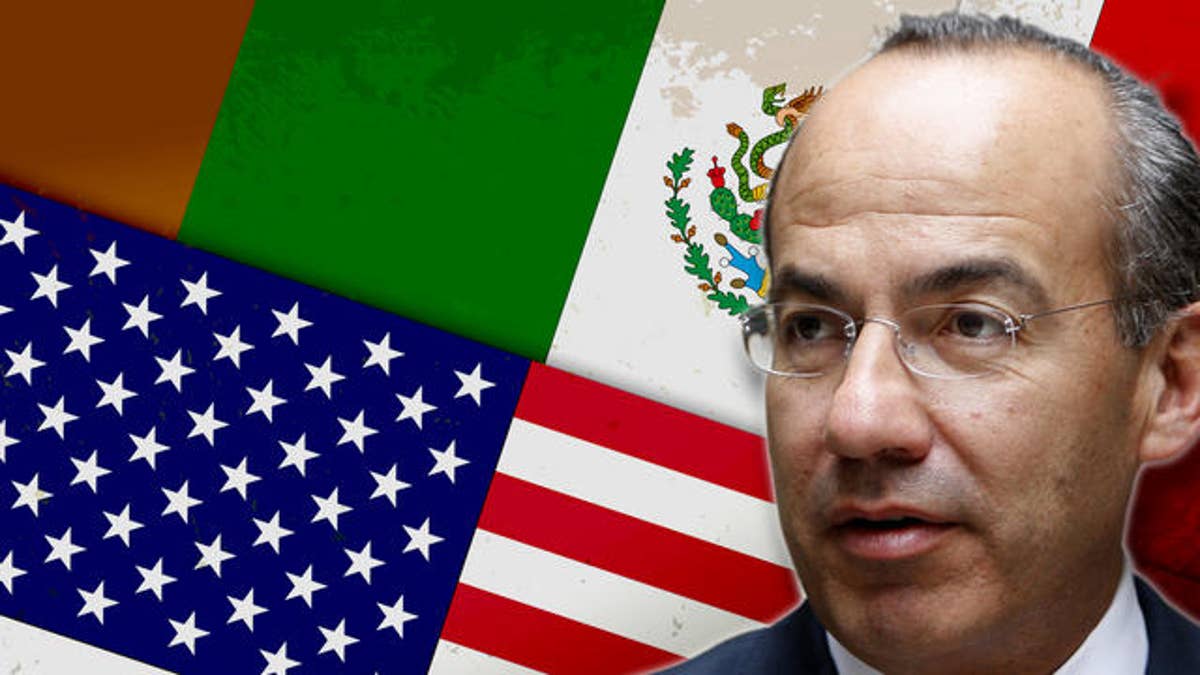
(AP)
Despite relaxing regulations, Mexico authorities say they expect just a fraction of the 10.8 million voting-age Mexicans living in the U.S. to register to vote in time for the 2012 Mexican presidential elections.
Mexico’s Federal Electoral Institute, or IFE, reported it had received 24,154 registrations as of Jan. 6—the latest count available. Voter registration for Mexican nationals abroad ends Sunday, Jan. 15.
There are 11.7 million foreign-born Mexicans living in the United States, according to the Census Bureau’s American Community Survey, 92.3 percent of whom are of voting age.
Those who wish to vote for Mexico’s next president have several hoops to jump through, despite the easing of requirements. Mexicans living abroad now can register to vote even if their voting card, known as an IFE credential, is expired—a change from the last election cycle, when voting cards had to be current.
“Even if it isn’t valid in Mexico, in the United States it’s valid,” said IFE spokeswoman Ana Isabel Fuentes Bustillos.
Livin' La Vida Loaded in Mexico City
Mexicans who want to vote must possess an IFE credential, however, which can only be gotten in their home country. For millions of Mexicans—especially those living in the United States without legal documents—returning to Mexico to apply for a voting card is an obstacle too difficult to clear. More than half of Mexicans residing in the United States are undocumented.
Fuentes Bustillos acknowledged the issue, and said IFE is advocating changes that would make it easier for paisanos to vote.
“The IFE has to guarantee that this right is protected,” she said. “It’s a major challenge for the institute.
Abraham, who prefers to be identified only by first name, has spent the past seven years working in upscale restaurants in New York. He said he wishes he could vote in the upcoming elections, but he lost his IFE credential some years ago. Going home to his native Puebla isn’t an option.
“It’s difficult for us because from here we can’t help or contribute to the democracy. They should make it easier. One vote can make the difference in who governs.”
“It’s difficult for us because from here we can’t help or contribute to the democracy,” he said in a telephone interview. “They should make it easier. One vote can make the difference in who governs.”
In July, Mexicans will choose a president from three candidates representing three political parties. All three will be officially chosen in February, but two political parties have all but solidified their choices.
Enrique Peña Nieto, former governor of populous Mexico state, is virtually assured the candidacy of the Institutional Revolutionary Party, or PRI. Peña Nieto is also the early frontrunner despite recent political stumbles. Should he win, his election would mark the return of the PRI, which governed Mexico for more than 70 years before being ousted in 2000 by the opposition National Action Party, or PAN.
The PAN, the party of current President Felipe Calderón, is deciding between three contenders: Santiago Creel, Ernesto Cordero and—the current favorite—Josefina Vázquez Mota.
Pointy Boots Craze Sweeps Mexican Town
Meanwhile, Andrés Manuel López Obrador is likely to get a second chance to run on the Democratic Revolution Party, or PRD, ticket. He lost the 2006 election to Calderón by less than 1 percentage point and spent years claiming to be Mexico’s “legitimate president.”
Duncan Wood, director of international relations at the Autonomous Technological Institute of Mexico (ITAM), noted that the timing of the registration is out of sync with the campaign itself. Candidates cannot campaign until they are officially chosen in February.
“It’s a severe problem in the system,” he said. “The lack of access to what is going on in the political campaigns and the fact the political parties are not active (in the U.S.) is what is holding it back.”
Voter registrations have trickled in from 81 countries since early October, with the vast majority—more than 20,000—coming from Mexicans living in the U.S. According to the count so far, California ranks No. 1 in registrations, followed by Texas, Illinois, Florida and New York.
The registrations represent more than double the number received over the same period during the previous presidential election cycle. Mexicans living abroad have had the right to vote since 2005.
Fuentes Bustillos recommended that all registrations be mailed by Friday, Jan. 13, to ensure processing in time.
Lauren Villagran is a freelance writer based in Mexico.
Follow us on twitter.com/foxnewslatino
Like us at facebook.com/foxnewslatino




